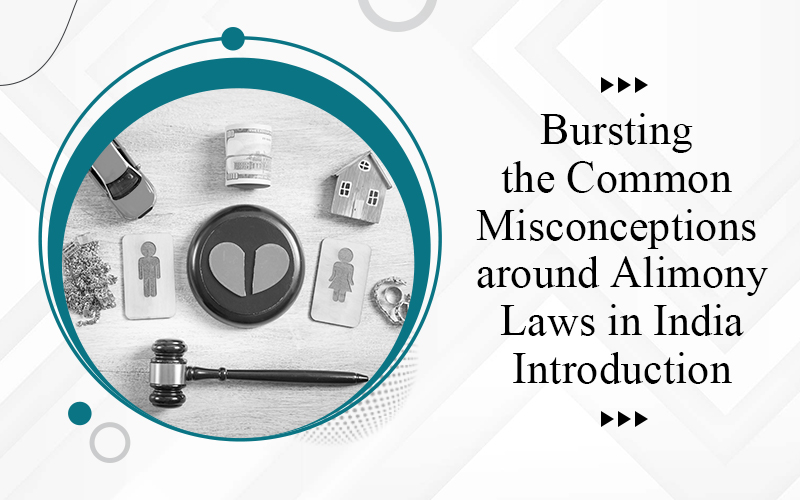Overview of Consumer Protection Act
The Consumer Protection Act (CPA) of 1986 is an important legislation in India that aims to protect the rights and interests of consumers. It was enacted by the Indian Parliament to provide consumers with a legal framework for seeking remedies in case of unfair trade practices, defective goods, and deficient services. The key purpose of the Consumer Protection Act is to ensure fair and ethical business practices, protect consumers from unfair trade practices, and provide them with remedies in case of deficiencies in goods or services. The Act encompasses various provisions related to consumer rights, responsibilities, redressal mechanisms, and penalties for non-compliance.
Key features of the Consumer Protection Act, 1986
- Definitions: The Act defines important terms such as “consumer,” “complaint,” “deficiency,” “goods,” and “services,” among others, to provide clarity and ensure consistent interpretation.
- Consumer Rights: The Act recognizes six fundamental consumer rights, namely the right to safety, right to be informed, right to choose, right to be heard, right to seek redressal, and right to consumer education.
- Consumer Forums: The Act establishes consumer forums at the district, state, and national levels, known as District Consumer Disputes Redressal Forum, State Consumer Disputes Redressal Commission, and National Consumer Disputes Redressal Commission, respectively. These forums provide a speedy and cost-effective resolution mechanism for consumer disputes.
- Jurisdiction: The Act specifies the jurisdiction of consumer forums based on the value of the goods or services involved in the complaint. Consumers can approach the appropriate forum based on the prescribed jurisdiction.
- Complaint Filing: The Act outlines the process for filing a consumer complaint. Consumers can file complaints with the respective consumer forum either in person or through an authorized representative.
- Remedies: The Act provides various remedies to consumers, including compensation for loss or injury suffered, replacement of defective goods, removal of defects in goods, refund of the price paid, and discontinuation of unfair trade practices.
- Product Liability: The Act introduced the concept of product liability, holding manufacturers, sellers, and service providers liable for any harm caused to consumers due to defective products or services.
- Penalties: The Act prescribes penalties for non-compliance with its provisions. It empowers consumer forums to impose fines and imprisonment on offenders involved in unfair trade practices or non-compliance with their orders.
Rights given to consumer under consumer protection act 1986
- Right to Safety: Consumers have the right to be protected against goods and services that are hazardous to their health or safety. Manufacturers and service providers are obligated to ensure that their products meet the required safety standards.
- Right to Information: Consumers have the right to obtain accurate and complete information about the goods and services they intend to purchase. This includes details about the quality, quantity, price, ingredients, and potential risks associated with the product or service.
- Right to Choose: Consumers have the freedom to choose from a variety of goods and services at competitive prices. They should not be subjected to unfair or restrictive trade practices that limit their options or manipulate their choices.
- Right to Be Heard: Consumers have the right to be heard and have their grievances addressed. They can voice their complaints or concerns regarding unfair trade practices, defective products, or deficient services and expect a fair and prompt resolution.
- Right to Redressal: Consumers have the right to seek redressal or compensation for any harm or loss suffered due to unfair trade practices, defective products, or deficient services. They can file complaints and seek remedies through the appropriate consumer forums established under the Act.
- Right to Consumer Education: Consumers have the right to be educated about their rights and responsibilities. They should have access to information and resources that enable them to make informed choices, understand their legal rights, and exercise them effectively.
The Responsibilities of the Consumer under Consumer Protection Act, 1986
- Providing Accurate Information: Consumers have a responsibility to provide accurate and truthful information when purchasing goods or services. This includes providing necessary details, such as personal information, delivery address, and payment information, accurately and honestly.
- Exercising Reasonable Care: Consumers should exercise reasonable care while purchasing goods or availing services. This involves conducting research, comparing options, reading product labels, and understanding the terms and conditions before making a purchase decision.
- Using Products and Services as Intended: Consumers have a responsibility to use products and services in accordance with their intended purpose and instructions. Misuse or negligence in handling products or services may lead to personal harm or damage, for which the consumer may be held responsible.
- Reporting Defects or Deficiencies: Consumers should promptly report any defects, deficiencies, or issues with the goods or services to the relevant seller or service provider. Timely reporting allows for appropriate actions to be taken to rectify the problem.
- Cooperating with Consumer Forums: If a consumer chooses to seek redressal through the consumer forums established under the Act, they have a responsibility to cooperate with the legal proceedings. This includes providing necessary evidence, attending hearings, and following the prescribed procedures.
- Avoiding Unfair Practices: Consumers should refrain from engaging in unfair trade practices that may harm other consumers or businesses. This includes activities such as false complaints, fraudulent claims, or deceptive practices that mislead or deceive sellers or service providers.
- Exercising Caution with Online Transactions: With the rise of e-commerce, consumers have a responsibility to exercise caution when conducting online transactions. This includes verifying the credibility of online platforms, using secure payment methods, and protecting personal and financial information from unauthorized access.
Important sections of the Consumer under Consumer Protection Act, 1986
- Section 2(1)(d): Defines the term “consumer” and specifies who is considered a consumer under the Act. It includes individuals who purchase goods or avail services for personal use, as well as those who use goods or services with the consent of the consumer.
- Section 2(1)(g): Defines the term “deficiency” and refers to any fault, imperfection, or shortcoming in the quality, nature, or manner of performance of goods or services.
- Section 2(1)(o): Defines the term “unfair trade practice” and provides a comprehensive list of practices that are considered unfair, such as false representation, misleading advertisements, and deceptive practices.
- Section 6: Establishes the District Consumer Disputes Redressal Forum, also known as the District Consumer Court, at the district level. This forum has jurisdiction over consumer complaints involving claims up to a specified monetary limit.
- Section 7: Establishes the State Consumer Disputes Redressal Commission, also known as the State Consumer Court, at the state level. This forum has jurisdiction over consumer complaints involving claims exceeding the monetary limit of the District Consumer Court but below the specified limit for the National Consumer Disputes Redressal Commission.
- Section 8: Establishes the National Consumer Disputes Redressal Commission, also known as the National Consumer Court, at the national level. This forum has jurisdiction over consumer complaints involving claims exceeding the specified monetary limit.
- Section 9: Specifies the procedure for filing a complaint with the appropriate consumer forum. It outlines the required documents, fees, and time limits for filing a complaint.
- Section 14: Grants consumers the right to file complaints not only in the district where the seller or service provider is located but also in the district where the consumer resides.
- Section 18: Outlines the powers of the consumer forums, including the authority to summon witnesses, examine documents, and issue orders for the resolution of consumer disputes.
- Section 21: Provides provisions for the settlement of disputes through mediation. It allows consumer disputes to be referred to mediation if both parties agree to it.
- Section 24: Empowers the consumer forums to award various reliefs to consumers, such as compensation for loss or injury, refund of the price paid, replacement of goods, removal of defects, and discontinuation of unfair trade practices.
- Section 27: Specifies the penalties for non-compliance with the orders of the consumer forums. It outlines fines and imprisonment for offenders engaged in unfair trade practices or non-compliance with the forum’s decisions.
Landmark cases of the Consumer under Consumer Protection Act, 1986
- Cadbury India Limited case: This case involved a consumer complaint against Cadbury for selling chocolates contaminated with worms. The National Consumer Disputes Redressal Commission (NCDRC) held Cadbury liable for the deficiency in the quality of its product and awarded compensation to the consumer. This case highlighted the importance of product quality and the responsibility of manufacturers to ensure consumer safety.
- Laxmi Engineering Works v. P.S.G. Industrial Institute: In this case, the Supreme Court of India held that the principles of strict liability should apply to cases involving defective products. The court ruled that a manufacturer is liable for damages caused by defective products, regardless of whether there was negligence on their part. This judgment strengthened the concept of product liability under the Consumer Protection Act.
- Hindustan Petroleum Corporation Ltd. v. Dilbahar Singh: This case dealt with the issue of deficiency in service by a petrol pump where adulterated petrol was dispensed to the consumer’s vehicle, causing damage. The NCDRC held the petrol pump liable for the deficiency in service and awarded compensation. This case highlighted the importance of service quality and consumer rights in the context of fuel stations.
- Indian Medical Association v. V.P. Shantha: The Supreme Court of India held that services rendered by medical professionals fall under the purview of the Consumer Protection Act. This judgment affirmed that consumers have the right to seek compensation for medical negligence and deficiency in medical services. It had a significant impact on the rights and protections available to consumers in the healthcare sector.
- Tata Motors Limited case: This case involved a consumer complaint against Tata Motors for manufacturing a defective car. The NCDRC held Tata Motors responsible for the defects and ordered a refund to the consumer. This case emphasized the importance of holding manufacturers accountable for defective products and ensuring consumer satisfaction.





One Response
consumer court
ALL concerned
I had filled consumer case in 2017
Judgement was given in 2019
Judgement said refund money received from complainant with interest
Pay for litigation and harassments rs 10000 in one month or 9% interest will be added
Accused failed to comply court order
After three months we filled case under execution 25 and 27 in 2019 asking relief of all our dues pending till the date he pays , RS 5 lacks for harassments and mental torture and to make good for legal expense
IN march 23 he compensated all amount which were due to us and rest relief pending
though we have not asked for relief of cancellation of deed ,the opponent is demanding for same though case is going on.
The sale deed was registered in 2014
Can expert guide how to go with same
Thanks